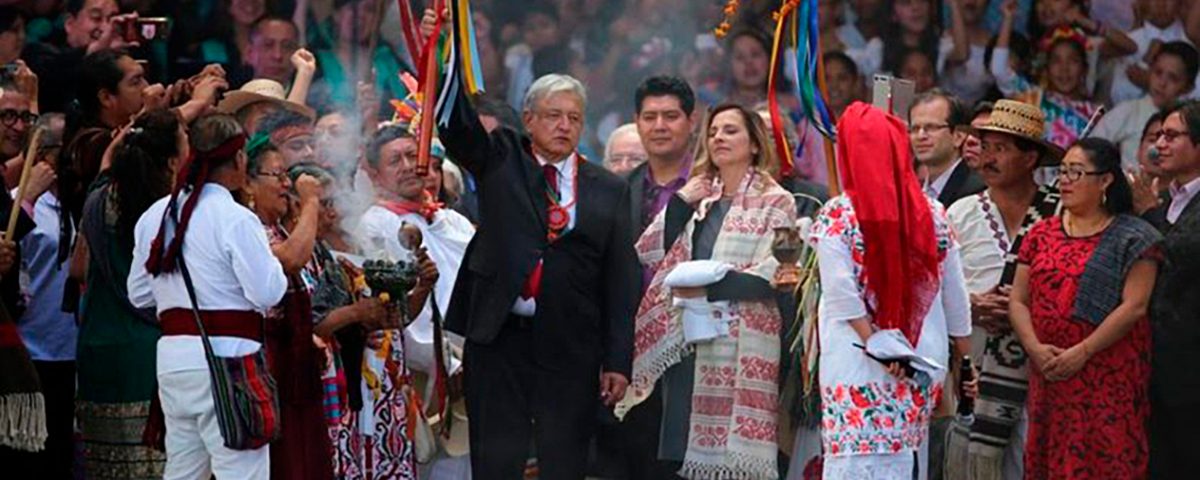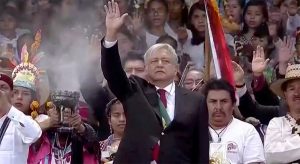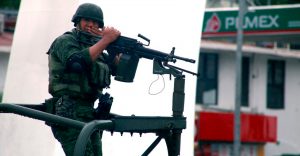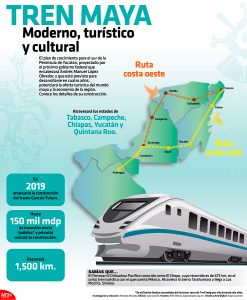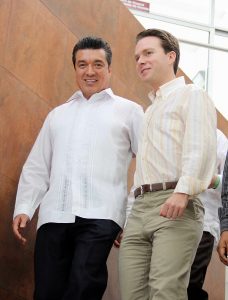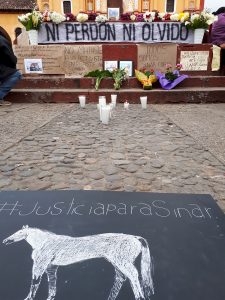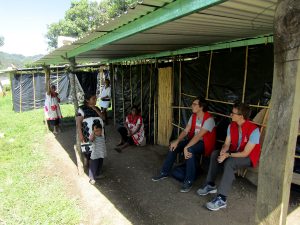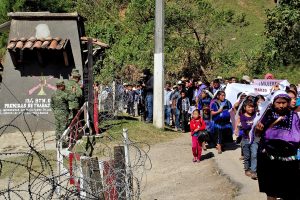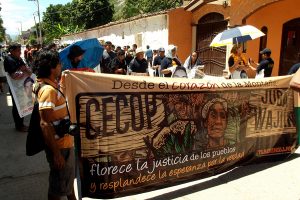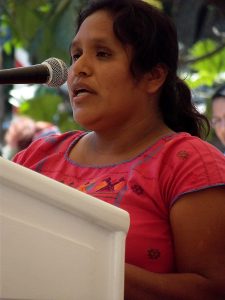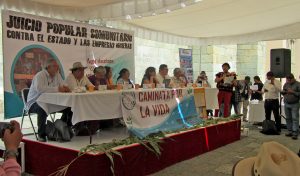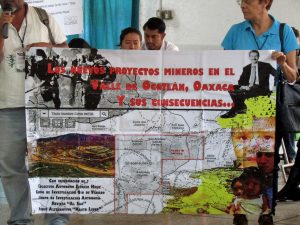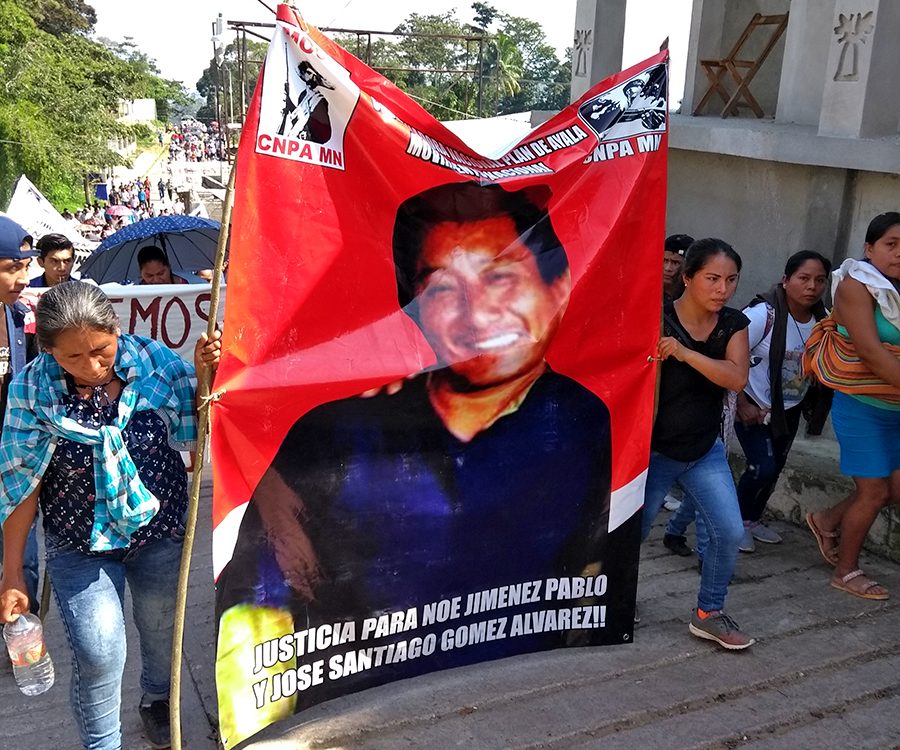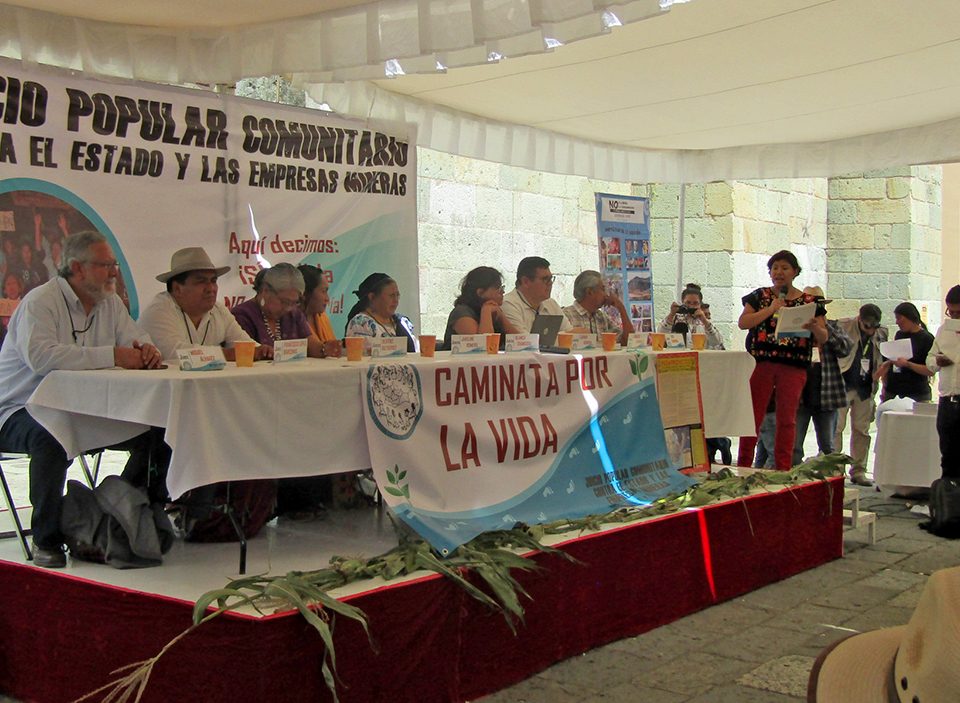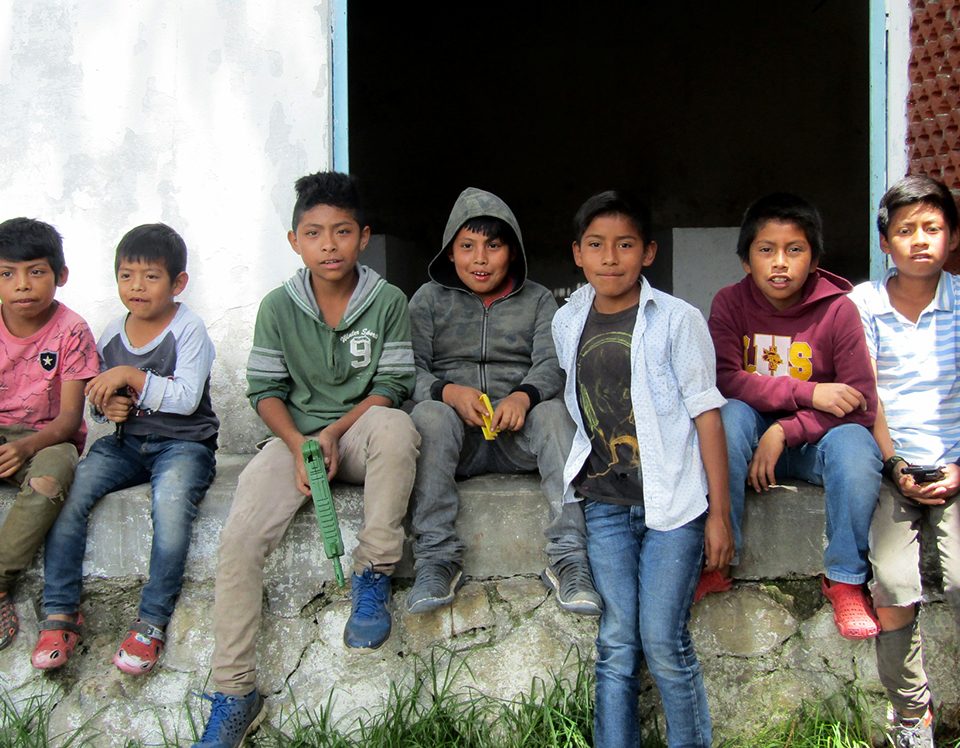2018
14/01/2019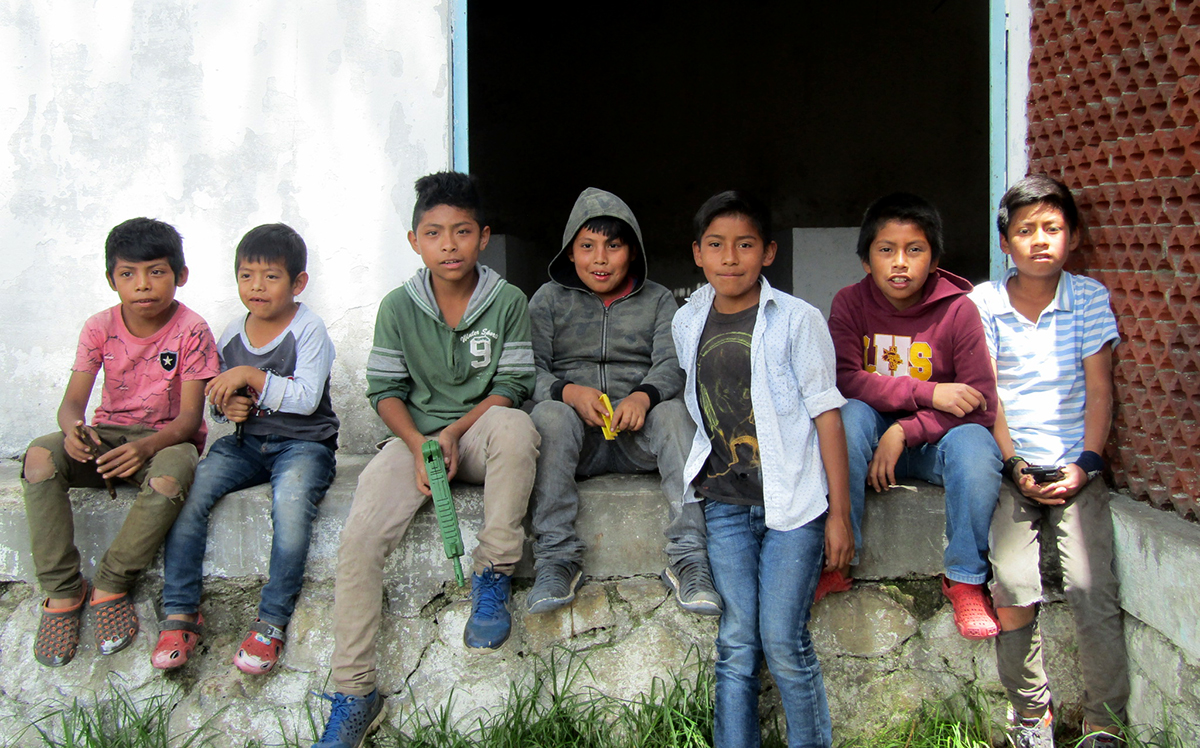
FOCUS: Violence against Children and Adolescents in Mexico – Reality and Responses
13/03/2019On December 1, Andres Manuel Lopez Obrador (AMLO) took office as president of Mexico.
Not only did he win, he acquired 30 million votes, 53% of the total number of ballots cast. Founded four years ago, his party, the National Regener Movement (MORENA in its Spanish acronym) became the most powerful political force in the country. The “Together We Will Make History” (Juntos Haremos Historia) coalition, led by MORENA, won a parliamentary majority in both houses.
In his inaugural speech, AMLO condemned the outgoing government: “Nothing has harmed Mexico more than the dishonesty of the rulers and the small minority that has profited from cronyism.” He proposed to put an end to corruption and impunity, although without initiating persecutions against former public officials. “There wouldn’t be enough judges nor prisons. We would break the country,” he said. He announced that there will be no tolerance for corruption from now on, which he demonstrated with the implementation of a plan against the “huachicoleros” who are involved in the theft of oil, a business that in 2018 represented 58 thousand barrels a day (more than 66,300 million pesos). His actions against oil theft provoked a gas shortage in several states, but the majority of the population has continued to support the crackdown.
Another priority for the new government is an austerity plan. AMLO renounced the use of what had been the presidential residence and airplane, and announced labor and salary cuts for officials. In December, magistrates and judges denounced being victims of “undue interference” that undermines the division of powers and the independence of the Judiciary. “The irreducible salary is not a privilege, rather one of the various guarantees of independence of the judiciary (…) a country cannot be called democratic where there is no counterweight of powers,” the statement said. The new remuneration norm cut the salaries of magistrates by 40%.
AMLO also reiterated his commitment to govern “with the poor first” and promised, among other things, to raise the minimum wage, pensions, open public universities, and not increase taxes. With the National Program of Indigenous Peoples and Afro-Mexicans, he announced that social programs for these populations would be a priority, including the program Youth Building the Future, as well as scholarships. The assistance for indigenous and Afro-Mexican elderly will be from age 65 (instead of 68). He emphasized that these supports will be delivered directly. In addition, he said that a constitutional reform would be continued “to put our national legal framework in line with the progress these rights have made at the international level.” Among the criticisms, it has been pointed out that many of AMLO’s proposals maintain a social welfare or assistencialist approach.
The National Guard: One of the most controversial proposals of the new government
Of the new proposals, the most controversial has been the creation of a National Guard aimed at preventing and combating violence. In December, the United Nations High Commissioner for Human Rights (UNHCHR) in Mexico stated that, “today we have no doubt about the disastrous effects of the militarization of public security in Mexico in terms of human rights.” He warned that “a decision to replace the federal civil body by a new one of military nature, also through a constitutional change, could be practically irreversible.”
When the discussion was opened in the Chamber of Deputies, public hearings were held in which governors, mayors, legislators, public servants, specialists, and representatives of civil organizations participated. The collective #SeguridadSinGuerra, which is composed of more than 300 organizations and individuals, questioned if the discussion should be opened after the government launched the call for the recruitment of those who will make up that institution: “If in truth times have changed and those who today govern and legislate are different, they cannot act in the same way, using the Congress of the Union as a procedural window.” AMLO declared that the objective is “not to waste time” but opposition legislators described this call as a “lack of respect” to the legislative branch.
In January, the Chamber of Deputies approved the constitutional reform to create the National Guard. The UNHCHR expressed that the ruling, even with modifications, is “worrying” because of the structure of the Guard with a board of military leaders; the improper regulation of the scope of the military jurisdiction; and due to the regulations involving detainees. “It constitutionalizes and makes permanent the military presence in security tasks, giving continuity to a policy that has generated more violence and has increased the occurrence of serious violations of human rights (…) All this, in a context of fragile control, ineffective mechanisms of accountability, and alarming impunity,” it warned. A few weeks later, the plenary session of the Senate unanimously approved the constitutional reform for the creation of the National Guard after making important modifications to the ruling. Among the main changes, it was established that the National Guard will be of a civil nature; in case of crimes committed by personnel, they would be judged by civil authorities. Finally, the military currently deployed in public security tasks will remain on the streets for a maximum length of five years while the National Guard is formed.
Megaprojects and extractivism: another worrying scenario for social players
In November, a consultation was held on some of the economic projects that the new government considers priorities. 1,098 voting centers were installed in 538 municipalities nationwide. 946,081 people participated and 89.9% voted in favor of the “Maya Train”, a proposal that seeks to connect the main archaeological centers in five states of the Mexican southeast. More than 90% of the participants voted in favor of the development of the Tehuantepec Isthmus Train (Oaxaca) and the refinery in Dos Bocas (Tabasco). Academics and civil organizations have questioned the ecological damage that these proposals could cause. Some criticized the consultation process, saying that it did not consult with the people who will be directly affected and that it did not take into account that much of the affected population is indigenous, and as such the consultation processes should have a different form according to international treaties ratified by Mexico.
Another priority project consists of planting one million hectares of fruit and forest trees, mostly in the southeast of the country. This proposal has also been questioned because of its welfare or asssistencialist nature and because it involves the delivery of individual subsidies, which can generate divisiveness in ejidos and indigenous communities.
The position of the new government regarding hydraulic fracturing (fracking) has also been questioned. In February, AMLO reiterated that there will be no fracking, while in previous days the Secretary of Energy stressed that the technology with the least environmental impact would be used. In addition, the use of fracking is contemplated in the 2019 budget and no action has been announced to cancel the fracking that already exists in 7,879 wells in the country. “Until it is prohibited by legislation, fracking will continue in force in Mexico,” warned the Mexican Alliance against Fracking.
Human rights defenders and journalists: vulnerability unchanged
In November, the Red Todos los derechos para Todas y Todos (All Rights for All Network, or Red TdT in its Spanish acronym) reported that during the presidency of Enrique Peña Nieto, 161 human rights defenders and 40 journalists were murdered. The TdT Network stressed that only 3% of cases of murdered defenders are taken to court and that these investigations “often ignore their activity as the cause of the murder.” 42 of the defenders were indigenous people. The TdT Network denounced that the State’s response “has been limited to the activation of the Protection Mechanism for Defenders and Journalists (…), which has only reactive measures and does not obey the specific needs of the beneficiaries.”
In January, the UNHCHR condemned the murders of two human rights defenders in Chiapas; as well as that of a journalist in Baja California Sur. Two of the victims had protection measures through the Mechanism, which “must lead to a profound reflection on its effectiveness. (…) Furthermore, these crimes must be fully clarified, because we must not forget that the best measure of protection and non-repetition in cases of attacks against defenders and journalists is a prompt and effective investigation that achieves justice for the victims.” “Mexico urgently needs to reverse the trend of increasing risk faced by those who practice journalism and the defense of human rights,” the UNHCHR concluded.
CHIAPAS: Rutilio Escandon takes office as the new governor
In December, accompanied by AMLO, Rutilio Escandon Cadenas took office as governor of Chiapas. He had been elected by the same coalition of parties that brought AMLO to power. He expressed that his administration will support federal projects such as the massive reforestation campaign (which would represent 200,000 hectares of Chiapas, creating, according to his calculations, more than 80,000 permanent jobs); as well as the Maya Train project. He added that he would join the Axis of Republican Austerity. He also made it clear that he would focus his efforts on allowing the construction a highway between San Cristobal de Las Casas and Palenque.
He replaced Manuel Velasco Coello (MVC), of the Green Ecologist Party, who left office amid strong disagreements from different social sectors, despite having reached the state office with 68% of the votes. Civil organizations, citizens, and media seemed to agree that MVC’s six-year term was characterized by a power vacuum, corruption, and impunity. There have been accumulated debts to suppliers, contractors, thousands of education and health workers, and there are 15 criminal complaints against the MVC government for inadequate use of public resources. Chiapas stagnated as the state with the most poverty in the country (more than 70%). There was also an increase in high-impact crimes, 300 femicides were registered and 12 human rights defenders were murdered in the last six years.
Three human rights defenders murdered in January
In January, human rights defender Sinar Corzo Esquinca was murdered in Arriaga. He was part of the Coloso de Piedra Citizens’ Committee for the Defense of Human Rights. He had already reported direct attacks, arbitrary detention, and death threats since 2013. More than 150 civil organizations expressed that they “observe with concern this sign of the fragile situation of human rights defenders in the state.” In February, a judge issued an arrest warrant against the former mayor of Arriaga (impeached by the congress for his role as the alleged mastermind of the murder). Four arrest warrants for the murder had already been issued.
Two weeks later, in Amatan, Noe Jimenez Pablo, member of the Independent Revolutionary Peasant Movement of Coordinator of the Ayala Plan (MOCRI-CNPA-MC in its Spanish acronym) and Jose Santiago Gomez Alvarez, of the Movement for Welfare, Peace, and the Common Good of Amatan, were found dead with signs of torture. This occurred after an armed commando dismantled the protest that these groups maintained against Wilbert and Manuel de Jesus Carpio Mayorga. Shortly after, the mayor of Amatan and the municipal council resigned and the state Congress of Chiapas appointed a new municipal council for Amatan.
Internal Forced Displacement: a reality that continues to lacerate the Highlands of Chiapas
In December, the Fray Bartolome de Las Casas Human Rights Center (Frayba) reported that nine camps of people in forced displacement in Chalchihuitan, were destroyed after assaults by the Municipal administrator. It also said that community authorities threatened to tie and burn representatives of the displaced, and banned access to humanitarian aid. At least 1,237 people remain displaced in Chalchihuitan because their land is on the edge of the conflict where armed groups from Chenalho are firing.
In mid-January, the National Commission for Human Rights issued a recommendation to various authorities in Chiapas regarding omissions in the response to the situation of forced displacement of Chalchihuian and Chenalho, as well as the forced displacement of 971 people from Colonia Puebla, municipality of Chenalho, due to post-electoral conflicts in 2016. It pointed out that in both situations fundamental rights were violated.
The year changed but not the situation of violence between the neighboring municipalities of Aldama and Chenalho, which derives from an older conflict over 60 hectares of land. In February, the Good Government Council (JBG in its Spanish acronym) of Oventik reported that this conflict has resulted in more than 20 indigenous people killed, dozens injured, forced displacement of more than 2,000 people, houses and crops burned, and daily shootings. It blamed the government for what might happen, emphasizing that, “the three levels of government past and present are responsible for the division, confrontations, fear, and breaking of community life. They never worried about resolving it, (…) it results in the authorities of the manipulated and pressured partisan towns requesting military presence, so that the population becomes accustomed to militarization.”
Militarization: the only response to violence?
In January, the Ministry of National Defense ordered the installation of a military base in Aldama, in an attempt to avoid further confrontations. Also in January, the authorities of the municipality of Chilon agreed to install a military detachment after a shootout between armed civilian groups and the municipal police that left two civilians dead and two policemen injured. The Center for Indigenous Rights CEDIAC considered “alarming and dangerous” “the unilateral decision taken by the Municipal President.” It questioned that the decision was “validated by all citizens.” It warned that “the history of the State of Chiapas (…) shows that the use of military force does not guarantee peace and social stability at any time.”
In February, the Network for Peace in Chiapas denounced a series of violent acts in the state since the change of governments: “This scenario of violence and conflict confirms that the Chiapas families that have always maintained economic and political control only changed their names and party colors to keep mafias of power intact.” It pointed out that “far from addressing conflicts in a comprehensive manner,” they continue a strategy of militarized security, “occupying territories and controlling civil life.”
Criticisms from various groups of new government proposals
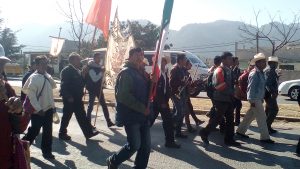
Pilgrimage of the Believing People of the Diocese (Pueblo Creyente) of San Cristobal de Las Casas, January 25, 2019 © SIPAZ
In the framework of the 25th anniversary of the armed uprising, the Zapatista Army for National Liberation (EZLN in its Spanish acronym) announced that it opposes several of the “destruction” plans of the new president: “Even if they try to humiliate us with repressive forces such as the National Guard, we will not rest in defending our Mother Earth because in her we were born, in her we live and in her we will die.” AMLO affirmed that, “even if they want to confront us, there will be no response.” In contrast, thousands of social network users strongly questioned the Zapatistas. Zapatista sympathizers pointed to “ignorance, falsehoods, and slander” in material that was circulating online.
It should be noted that the EZLN is not the only group that has positioned itself against the new federal government in this way. The National Indigenous Congress (CNI in its Spanish acronym) expressed that “we do not believe the foreman of capitalism who claims to govern Mexico, and we will not accept any false consultation like those with which they want to legitimize the theft of indigenous and peasant territories, our extermination, and the exacerbation of the war against us.” In January, the Believing Peoples of the Diocese of San Cristobal de Las Casas denounced that “everything is calm according to the authorities, but in reality, the people are those who feel and suffer injustice, abuses, corruption, and impunity.” They demanded the solution of several sociopolitical conflicts, the cessation of militarization and paramilitarization, and the halting of threats against defenders who fight for the common good. They spoke out against megaprojects that “are strategies of low intensity warfare, keeping us disorganized, full of conflicts that lead to dispossession.”
GUERRERO: Advances in the Ayotzinapa case fail to cover up multiple human rights challenges
In November, the National Commission for Human Rights presented a recommendation on the forced disappearance of 43 students from the Normal Rural School of Ayotzinapa and the death of six people, which happened in Iguala in 2014. The recommendation pointed out that “what happened in Iguala should not be seen as an isolated case, but as a reflection of the situation being experienced by different regions of the country, and in which the possibility of an episode taking place of similar dimensions and characteristics is a latent risk.” It indicated that the investigation showed “that the authorities violated the rights of the victims and society to the truth.”
In December, in one of his first acts as president, AMLO signed a decree creating a Truth Commission for the Ayotzinapa case. Relatives of the students expressed that the decree gives them hope, although “confidence will have to be won.” The ProDH Human Rights Center stressed that the decree instructs the entire federal administration to collaborate, which is notable “given that in the past, the federal government obstructed the process.” Outside the National Palace, relatives of the disappeared demanded that immediate search and investigation mechanisms be applied in all cases of disappearances, not only in Ayotzinapa.
Regarding human rights defenders, the Movement for the Freedom of Political Prisoners of the State of Guerrero has reported that the defense of their territory has brought persecution against the Council of Ejidos and Communities Opposed to La Parota Dam (CECOP in its Spanish acronym) and the Regional Coordinator of Community Authorities – Community Police (CRAC-PC in its Spanish acronym). 19 of its members have been arrested since January 2018. In February, members of European Parliament pointed out that “additionally, lawyers and members of the Tlachinollan Mountain Human Rights Center were targets of defamation … when assuming legal representation.”
In February, Obtilia Eugenio Manuel and Hilario Cornelio Castro, members of the Organization of the Indigenous Peoples of Me’ Phaa (OPIM in its Spanish acronym) and part of the Council of Community Authorities of Ayutla, disappeared. Four days later they were located alive even though they showed “visible signs of torture”.
Regarding freedom of expression, beginning in December the magazine Proceso denounced the “climate of harassment, threats, and intimidation that prevails in Guerrero against independent journalism” and particularly against its correspondent in that state who was harassed through social media networks. In February, the director of the Mexico City office of El Sur newspaper in Guerrero received death threats.
In November, Tlachinollan declared Guerrero “First place in violent deaths of women, presumed as femicide” with at least 213 women murdered in 2018. There is denial, incapability, lack of gender perspective, disinterest, and lack of political will to guarantee the right of women to a life free of violence. Despite the Declaration of the Alert of Gender Violence in Guerrero in eight municipalities in 2017, there is no progress.
OAXACA: List of pending issues
In November, women blocked the entrance of the State Attorney General’s Office, criticizing “the simulation in the implementation of the gender alert, not seeking justice, nor giving attention to the victims.” According to Consorcio, since the beginning of the administration of Governor Alejandro Murat Hinojosa there have been 406 disappearances of women, 238 femicides, 153 sexual crimes, 229 episodes of family violence, 47 suicides, some of which were the product of systematic gender violence, and 30 cases of political gender violence.
In December, seven Oaxacan journalists from the newspaper Noticias Voz e Imagen reported receiving a collective threat via Facebook. They expressed outrage at the atmosphere of violence that is endangering their journalistic work, as well as their physical safety and that of their families. In Murat Hinojosa’s time as governor, more than 70 denunciations by journalists were registered. They demanded the guarantee of freedom of expression and freedom of the press, and that pending cases of crimes against this sector be resolved. The organization for freedom of expression Articulo 19 stressed that all of the victims “cover information related to the use of public expenditure, corruption, and politics.”
In December, communities and organizations that participated in the “Popular Community Trial against the State and Mining Companies in Oaxaca” publicly presented the final ruling that raised the need to cancel the 322 concessions and the 41 mining projects in force in the state (see Article).
In February, the Meeting in Defense of Territory, the Common Good, and the Rights of Peoples took place in Santa Maria Atzompa. “The current government is not solving the needs of the people and social organizations and, on the contrary, is creating megaprojects that represent dispossession and a strategy of depredation of territory”, the participants stated. They noted that although the new government presents a vision of the nation coming from the hand of the people, the facts represent the continuation of the neoliberal project.
Also in February, the Coordinator of the United Peoples of Ocotlan Valley (COPUVO in its Spanish acronym) warned about the risk of violence in San Jose del Progre given “the authoritarianism and abuse of power by [the mayor] Servando Diaz Vasquez, with his stubbornness to gain control of the Municipal Palace in a violent manner”, an action in which, he said, he could use “paramilitary groups” against those opposed to the San Jose mining project of Fortuna Silver Mines. The COPUVO has held the municipal palace since 2009, when Fortuna Silver Mines entered the community. The Ombudsman for the Human Rights of the People of Oaxaca called on the authorities and the population for a dialogue regarding the problem.

